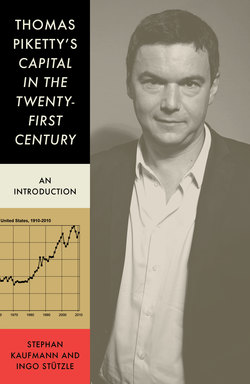Thomas Piketty’s Capital in the Twenty First Century

Реклама. ООО «ЛитРес», ИНН: 7719571260.
Оглавление
Stephan Kaufmann. Thomas Piketty’s Capital in the Twenty First Century
Thomas Piketty’s. Capital in the Twenty-First Century. An Introduction
Contents
Notes
Index
Отрывок из книги
STEPHAN KAUFMANN
AND INGO STÜTZLE
.....
The consequence in many countries was a drastic reduction in expenditures and a search by states for new sources of revenue in order to decrease budget deficits. This put the question on the table: who should pay for the costs of the crisis and the bank bailouts? The value added tax was increased in many places, which made consumption more expensive. The crisis and austerity programmes led at the same time to a considerable decline in wages and social benefits. Largely spared, in contrast, were the banks, although they were simultaneously pilloried as the parties responsible for the crisis. The ‘wealthiest’ were also spared, this despite the fact that the share of the wealthiest per centile of the population of total pre-tax income in all industrial countries had risen for decades, thanks also to the developments that had ultimately led to the crisis.10
With the crisis it also became clear that it was not only public debt that had risen. The debt of private households and businesses had increased for decades. Thus total debt in the US (for both the public and private sector) amounted at the beginning of the 1980s to about 120 per cent of gross domestic product (GDP); but by 2008 it had risen to 240 per cent of GDP. In the eurozone, the ratio of total debt to GDP had risen from 150 to almost 300 per cent, in the UK from 150 to 280 per cent, and in Japan from 250 to almost 400 per cent.11 These obligations on the part of debtors corresponded to the claims of creditors; it thus reflected the rise in private financial wealth.
.....